598 Search Results Found For : "단양길음역청소년출입금지【카카오톡:Za31】오동재:www.za32.net"
Project: Demography and Economics of Aging and Alzheimer’s Disease
Effects of the Great Recession on Older Americans’ Health and Well-Being
Although young adults in their 20s and 30s bore the brunt of the Great Recession (2007 to 2009), many Americans ages 50 and older were also affected by rising unemployment, falling home values, and the decline in the stock market.
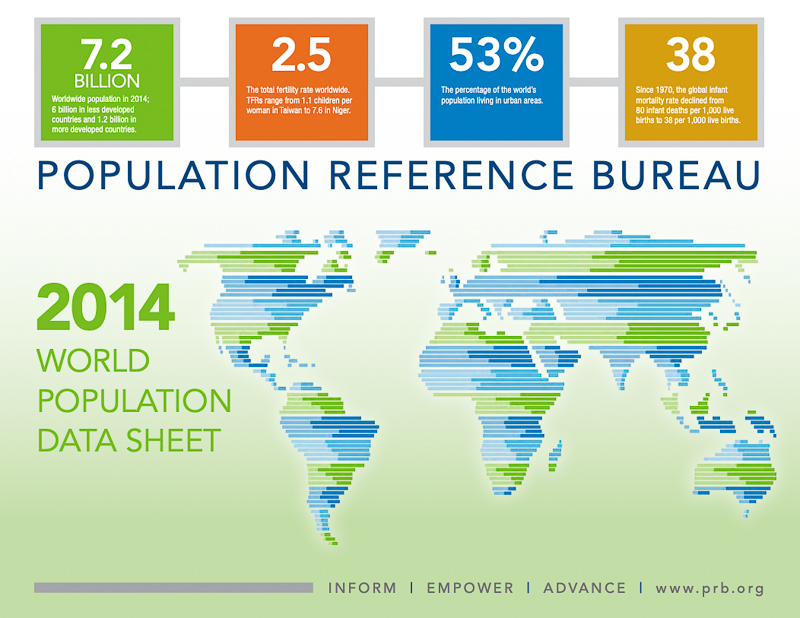
Project: PACE: Policy, Advocacy, and Communication Enhanced for Population and Reproductive Health
2014 World Population Data Sheet (PDF)
PRB’s World Population Data Sheet is an annual report on the world’s demographic, health, and environmental progress and challenges.
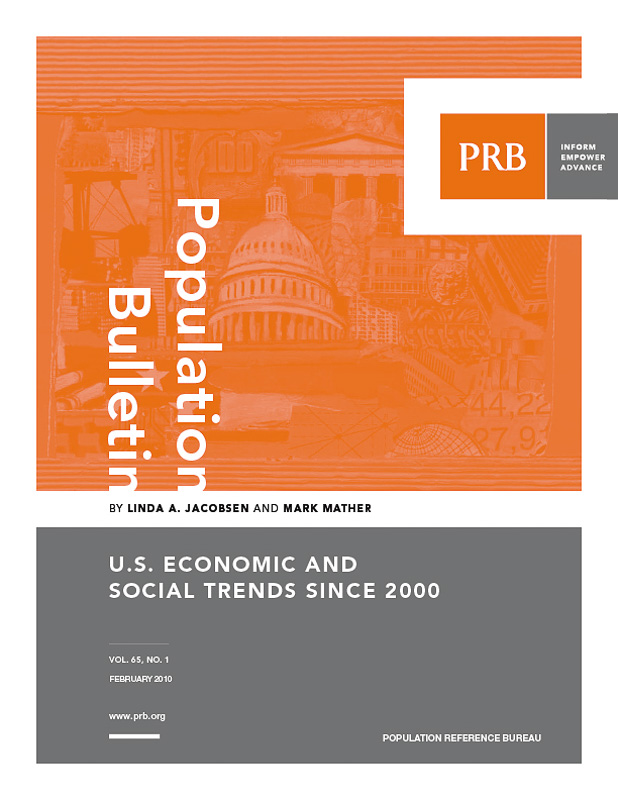
U.S. Economic and Social Trends Since 2000
(2010) This has been a tumultuous decade for the United States. During the first 10 years of the 21st Century, there was a major terrorist attack, a housing meltdown, a severe economic recession, and a significant downturn in the U.S. stock market.
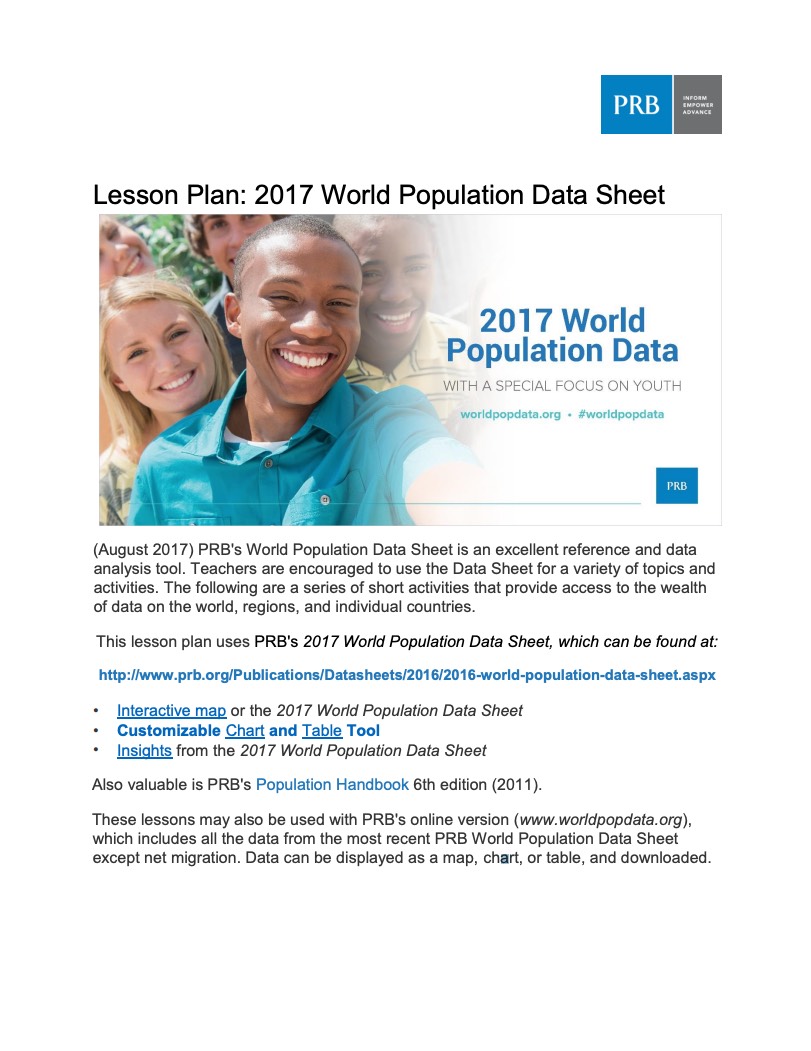
Project: PACE: Policy, Advocacy, and Communication Enhanced for Population and Reproductive Health
Lesson Plan: 2017 World Population Data Sheet
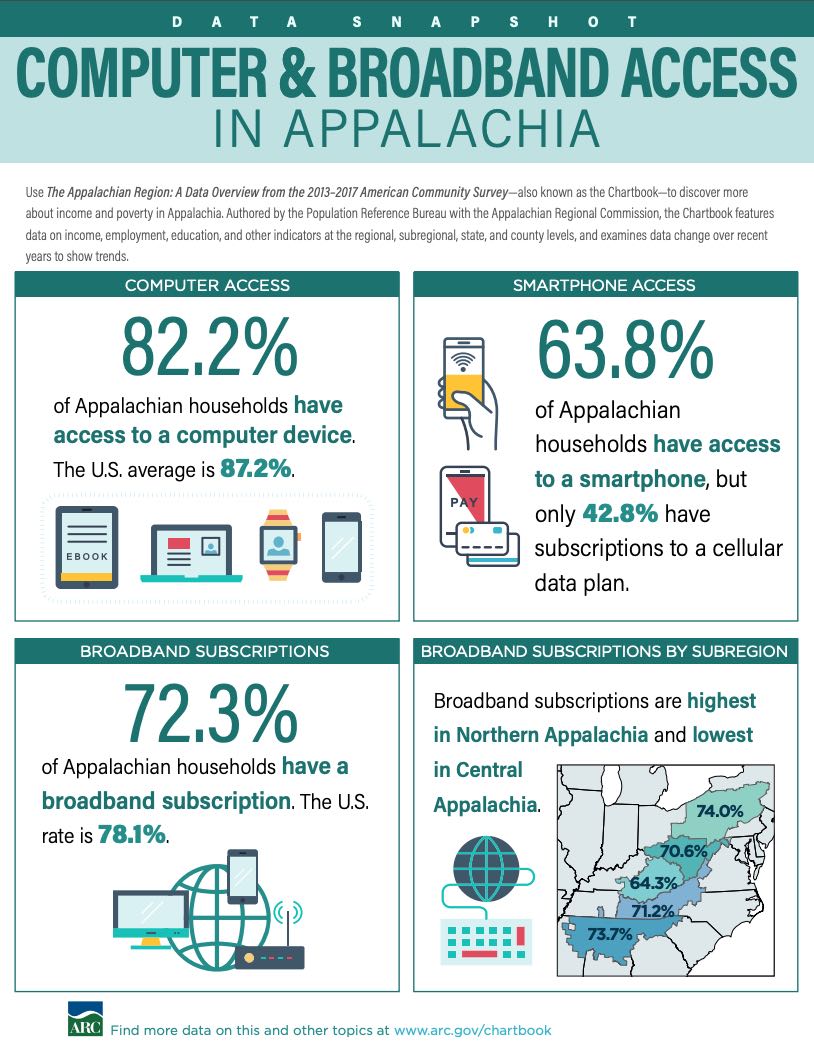
Project: American Community Survey and Decennial Census Support Services
Data Snapshot. Computer & Broadband Access in Appalachia (2013-2017)
82.2% of Appalachian households have access to a computer device. The U.S. average of 87.2%.
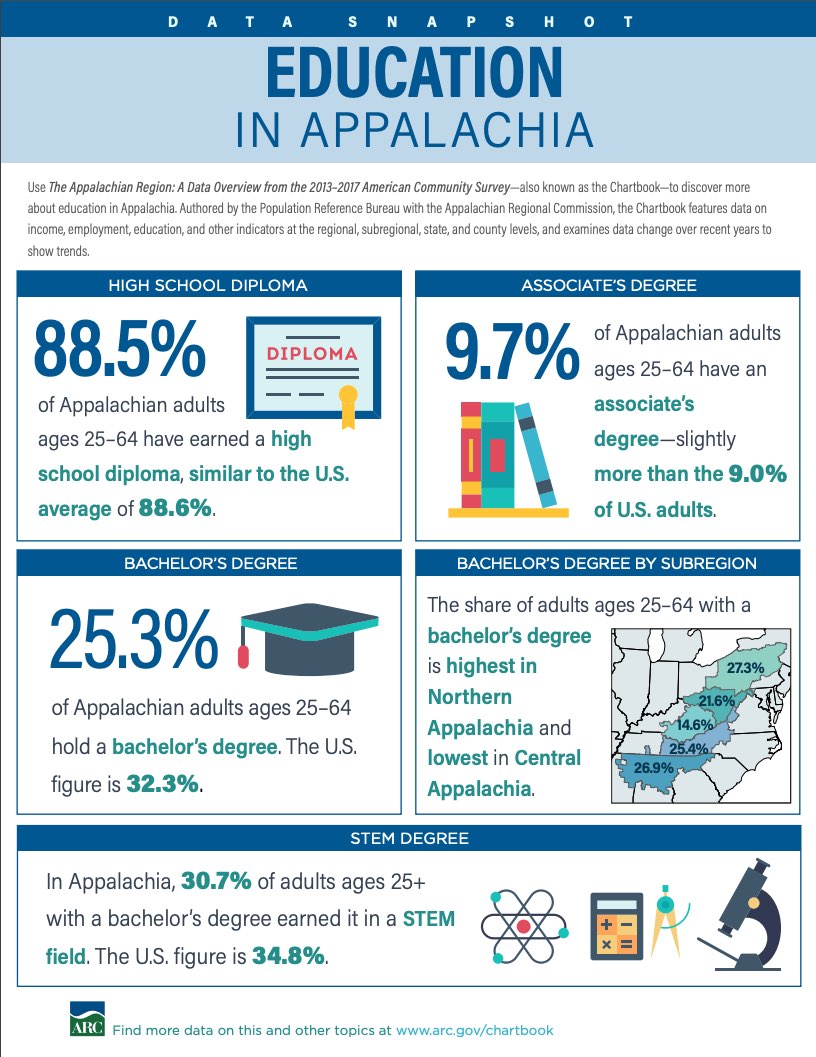
Project: American Community Survey and Decennial Census Support Services
Data Snapshot. Education in Appalachia (2013-2017)
88.5% of Appalachian adults (ages 25-64) have earned a high school diploma, similar to the U.S. average of 88.6%.
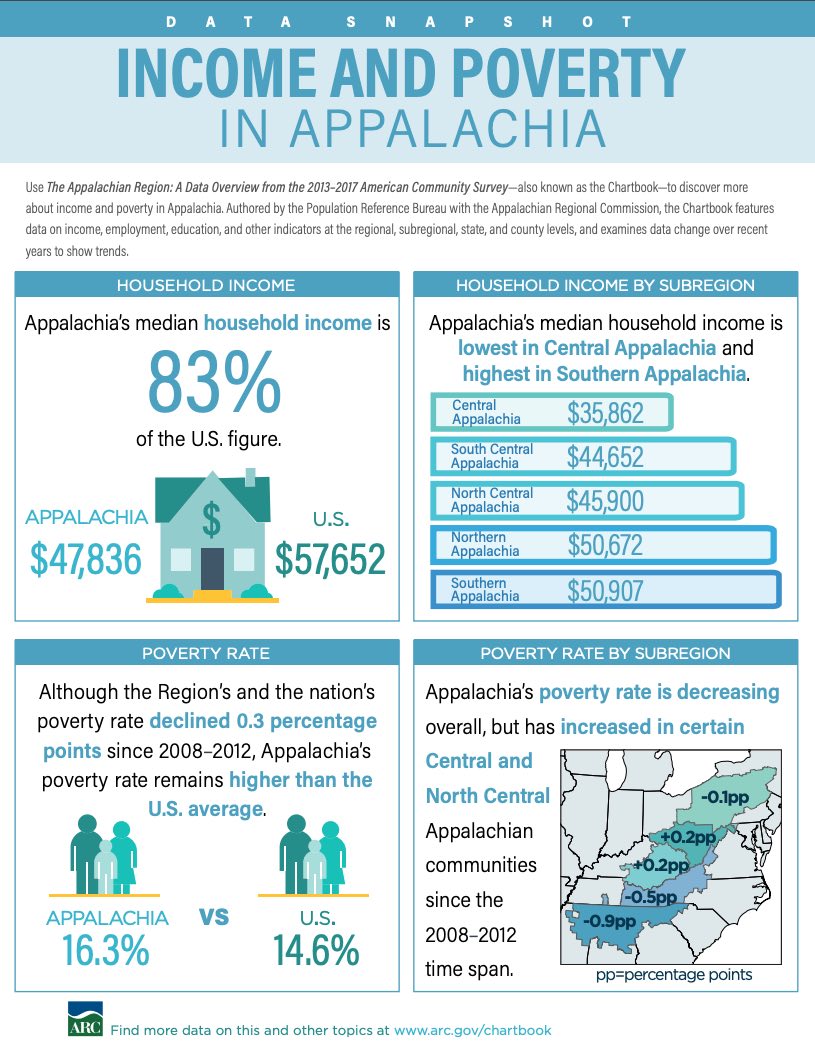
Project: American Community Survey and Decennial Census Support Services
Data Snapshot. Income and Poverty in Appalachia (2013-2017)
Appalachia's median household income is 83% of the U.S. figure.

Project: American Community Survey and Decennial Census Support Services
Appalachia’s Digital Gap in Rural Areas Leaves Some Communities Behind
Data suggest that Appalachia faces a digital divide—not just between the Region’s households and the rest of the nation but also between the Region’s rural and more urban areas, say the authors of a Population Reference Bureau (PRB) report for the Appalachian Regional Commission.
